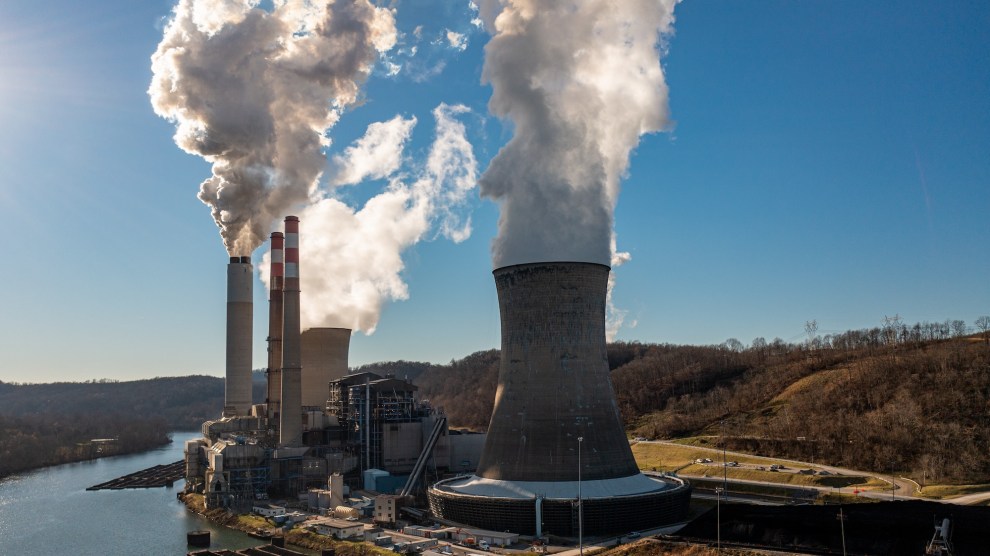
Illustration by: Erik T. Johnson
This hasn’t been the best year for British Petroleum. After the series of embarrassing pipeline breaks in Alaska, critics say the British energy giant can no longer claim to be an environmentally conscious oil company committed to moving “beyond petroleum.” But in fact, the Alaska blunders are really just reminders that, when it comes to oil, environmental virtue is a commodity in sharp decline.
Few industries pose such challenges to corporate ethics as oil does. Extracting crude is a messy business. Burning its products produces all kinds of pollution—especially climate-warming carbon dioxide. And because oil companies must supplement their own dwindling oil fields with crude from big exporters, firms have little choice but to buy from repressive regimes like Iran, Saudi Arabia, or Russia—and worse, must often bid against India and China, which, as one analyst notes, can openly “offer bribes and arms in exchange for oil.” From a purist’s standpoint, oil is so problematic that a truly ethical company would abandon it completely.
BP, of course, never claimed to be leaving oil: By the company’s own forecasts, alternatives won’t replace oil and natural gas for 30 to 50 years. But starting in the late 1990s, CEO John Browne did argue that the transition to alternatives could be accelerated by changing industry practices today. Even as heavyweights like ExxonMobil busily denied that climate change existed—and lobbied hard to kill climate policies—BP vowed to cut its own CO2 emissions and invest heavily in solar, wind, and other alternative technologies; it even supported that oil-industry bogeyman, the Kyoto climate treaty. “Climate change is an issue which raises fundamental questions about the relationship between companies and society as a whole, and between one generation and the next,” Lord Browne declared in 2002. “Companies composed of highly skilled and trained people can’t live in denial of mounting evidence gathered by hundreds of the most reputable scientists in the world.”
Predictably, however, BP’s re-branding as the Jolly Green Energy Giant has been a hard sell. The company’s actual investment in alternatives is tiny: Although BP put $500 million into solar power between 2000 and 2005, it spent $8.4 billion exploring and producing petroleum in 2004 alone. And for all the talk of a new environmental ethos, BP at one time lobbied hard to open the Arctic National Wildlife Refuge to drilling. Even its support of Kyoto is pilloried as disingenuous: BP happens to be overstocked in reserves of natural gas, a fuel that emits less CO2 than coal or oil, and whose price would rise sharply if society were forced to cut carbon emissions.
But the harshest criticism has always come from Wall Street, which worried that even a small increase in investment in non-oil alternatives would distract BP’s focus from its core business—oil. After commentators and analysts ridiculed BP for moving “beyond profits,” the company quietly dropped the “beyond petroleum” motto and sought to reassure markets that it was still very much an oil company. BP’s spending on alternatives relative to oil and natural gas is less than 5 percent, and some environmentalists argue that, even if BP was genuinely interested in being a different kind of company, it has since chosen profit over principle.
To be fair, BP still leads the industry in green actions: Citing worrisome new data on global warming, it recently pledged to triple its production of solar panels over the next three years. Yet, ironically, some industry watchers wonder whether BP could have avoided the recent damage to its environmental image by behaving a little less green and a little more like a “normal” oil company—that is, focusing on basics such as exploration, production, and, above all, maintenance. ExxonMobil, a company routinely disparaged as anti-environmentalist—not least for the 1989 Exxon Valdez disaster—is now known for its obsessive focus on maintenance. “ExxonMobil would never have been caught with a corroded pipeline,” says one industry observer. It “is a company that does everything in a gold-plated manner. It’s purely a commercial decision: You never put in anything that might fail”—not for ethical reasons, but because, as BP has discovered, failure is expensive.
















